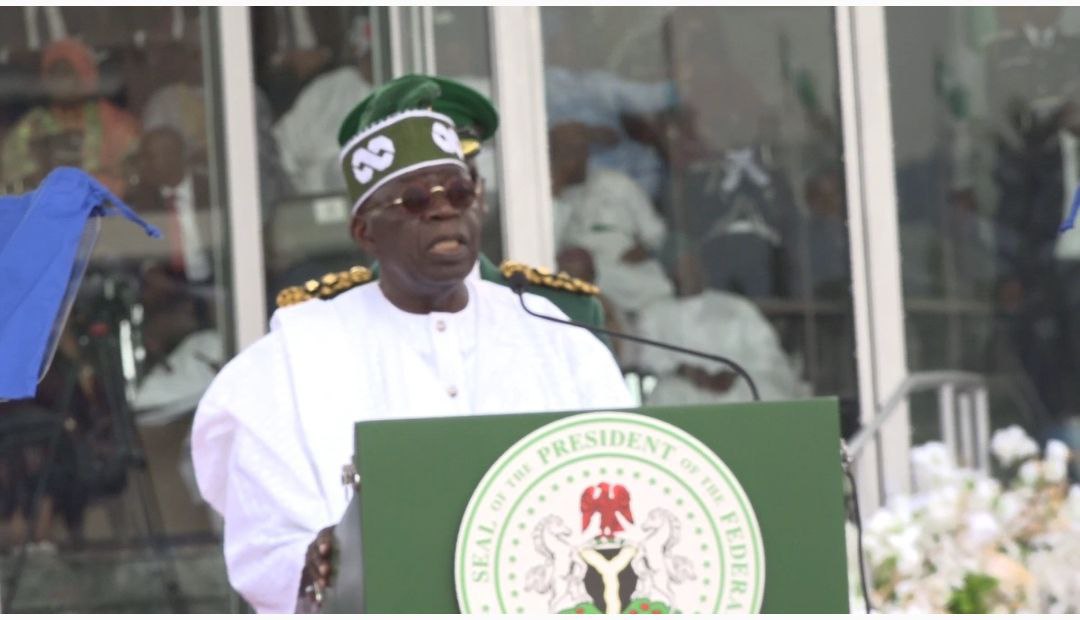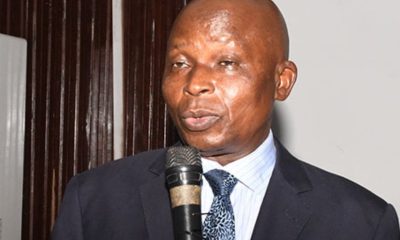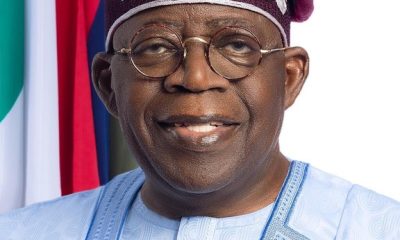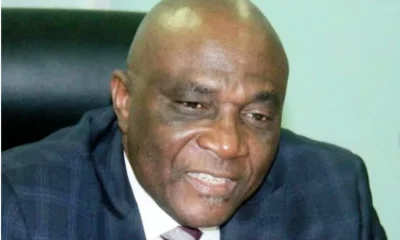Headline
Fuel Price Surge Sparks Public Outcry: Tinubu Vows To Tackle Crisis Head-on by

Fuel Price Surge Sparks Public Outcry: Tinubu Vows to Tackle Crisis Head-On
In his inaugural speech as the newly sworn-in president of Nigeria, President Tinubu addressed the pressing issue of the fuel crisis gripping the nation. He emphasized that there was no provision for fuel subsidy by the past administration, signaling the end of fuel subsidy. Despite the immediate onset of the fuel crisis, Nigerians expressed their support for Tinubu’s bold decision.
However, in response to the rising fuel prices and the resulting cost of living, Nigerians called for immediate palliative measures. They demanded an increase in the minimum wage to at least 100,000 Naira, 24/7 provision of electricity, and highly subsidized public transportation across states.
President Tinubu outlined his plans to tackle these challenges and provide relief to the Nigerian people. He emphasized that security would be the top priority of his administration and pledged to reform the security doctrine and architecture. This would involve investing more in security personnel through better training, equipment, pay, and firepower.
To address the economic issues, Tinubu’s administration aims to target higher GDP growth and reduce unemployment. They plan to implement budgetary reforms that stimulate the economy without causing inflation.
Additionally, they will employ fiscal measures to promote domestic manufacturing, reduce import dependency, and make electricity more accessible and affordable. The generation, transmission, and distribution networks for power will be improved, and states will be encouraged to develop local sources of electricity.
Tinubu also expressed his commitment to creating meaningful opportunities for the youth and delivering on the promise of one million new jobs in the digital economy. His administration plans to work with the National Assembly to pass an omnibus Jobs and Prosperity bill, facilitating labor-intensive infrastructure improvements, encouraging light industry, and providing improved social services for the marginalized.
In the agricultural sector, Tinubu aims to secure rural incomes through commodity exchange boards that guarantee minimal prices for crops and animal products. Nationwide programs for storage and other facilities will be implemented to reduce spoilage and waste.
Agricultural hubs will be established to increase production and engage in value-added processing, while the livestock sector will adopt modern practices and resolve conflicts over land and water resources.
Continuing the efforts of the previous administration, Tinubu’s government will prioritize the development of national networks of roads, rail, and ports. Monetary policy will be reformed to establish a unified exchange rate, reduce interest rates, and promote investment in the real economy. The policy on currency swaps will also be reviewed.
On the foreign policy front, Tinubu emphasized the importance of peace and stability in the West African subregion and the African continent. His administration will work closely with ECOWAS, the AU, and international partners to end existing conflicts and promote collective prosperity.
As Nigerians await the implementation of these plans, the National Labour Congress (NLC) has threatened to go on strike over the ongoing fuel crisis. It remains to be seen how President Tinubu’s leadership and proposed solutions will address the immediate concerns of the Nigerian people and pave the way for a more prosperous and secure future.
Headline
Fagbemi warns against obstructing EFCC from performing its lawful duty

The Minister of Justice, Lateef Fagbemi, SAN has warned against obstructing the Economic and Financial Crimes Commission (EFCC) from carrying out its lawful duty .
Fagbemi’s warning is contained in a statement in Abuja.
“This is a matter of very grave concern, it is now beyond doubt that the EFCC is given power by the law to invite any person of interest to interact with them in the course of their investigations into any matter, regardless of status.
“Therefore, the least that we can all do when invited, is not to put any obstruction in the way of EFCC, but to honourably answer their invitation.
“A situation where public officials who are themselves subject of protection by law enforcement agents will set up a stratagem of obstruction to the civil and commendable efforts of the EFCC to perform its duty is to say the least, insufferably disquieting’’.
He added that running away from the law will not resolve issues at stake but only exacerbate them.
“Nigeria has a vibrant judicial system that is capable of protecting everyone who follows the rule of law in seeking protection.
“I therefore encourage anyone who has been invited by the EFCC or any other agency to immediately toe the path of decency and civility by honouring such invitation instead of embarking on a temporising self-help and escapism.
“This can only put our country in bad light before the rest of the world’’.
He said institutions of state should be allowed to function effectively and efficiently.
“I stand for the rule of law and will promptly call EFCC, and indeed any other agency to order when there is an indication of any transgressions of the fundamental rights of any Nigerian by any of the agencies’’.
NAN reports that the EFCC had on Wednesday warned members of the public that it was a criminal offence to obstruct officers of the Commission from carrying out their lawful duties.
Section 38(2)(a(b) of the EFCC Establishment Act makes it an offence to prevent officers of the Commission from carrying out their lawful duties. Culprits risk a jail term of not less than five years.
The warning , the EFCC said, became necessary against the background of the increasing tendency by persons and groups under investigation by the Commission to take the laws into their hands by recruiting thugs to obstruct lawful operations of the EFCC.
On several occasions, the anti graft agency said, operatives of the Commission have had to exercise utmost restraint in the face of such provocation to avoid a breakdown of law and order.
Headline
Unknown Gunmen Abduct Channelstv Reporter In Port-harcourt

Some unknown gunmen have kidnapped Joshua Rogers, the ChannelsTV reporter in Port-Harcourt, the Rivers State capital.
Politics Nigeria learnt that Rogers was picked up close to his residence at Rumuosi in Port Harcourt and to an unknown destination by the gunmen around 9pm on Thursday, April 11.
The reporter was driving his official ChannelsTV branded car when the hoodlums accosted, pointed a gun at him and took him away in the same vehicle.
Rogers was said to be returning from his official assignment in Government House after a trip to Andoni for a government event when the incident happened.
Already, the gunmen were said to have contacted his wife and demanded a N30million ransom for bis release.
His cameraman confirmed the incident and appealed to his abductors to set him free unconditionally.
-

 Business3 days ago
Business3 days agoSeplat Energy celebrates a decade of Dual Listing with Bell Ringing Ceremony at Nigerian Stock Exchange
-

 News3 days ago
News3 days agoBDCs now buying dollar at ₦980 — ABCON President
-

 Metro3 days ago
Metro3 days agoOsun Poly Student, Olanrewaju Olatona killed by hit-and-run one-way driver
-

 Headline3 days ago
Headline3 days agoFagbemi warns against obstructing EFCC from performing its lawful duty
-

 News3 days ago
News3 days agoLASG’s maize palliative impactful, says poultry association chair
-

 News3 days ago
News3 days agoWoman killed while crossing road in Anambra
















